-
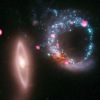 +22 +1
+22 +1Scientists finally track down the source of mysterious radio bursts
The signals can help us track down our universe's "missing" matter. By Rachel Feltman.
-
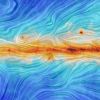 +22 +1
+22 +1Where Are All the Aliens? Taking Shelter From the Universe’s Radiation
Earlier life-forms across the cosmos may have faced thousands to millions of times the cosmic ray dose that we do today. By Nola Taylor Redd. (Jan. 22)
-
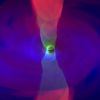 +20 +1
+20 +1The Death of General Relativity Lurks in a Black Hole’s Shadow
Scientists are compiling a picture of the shadow of the supermassive black hole at the center of the Milky Way, and it could reveal general relatively breaking down. By Lizzie Wade.
-
 +20 +1
+20 +1Physics’s pangolin
Trying to resolve the stubborn paradoxes of their field, physicists craft ever more mind-boggling visions of reality. By Margaret Wertheim. (June ’13)
-
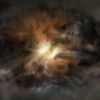 +25 +1
+25 +1The brightest known galaxy is tearing itself apart
One of the brightest galaxies in our Universe has a giant black hole at its centre, and as a result the galaxy is slowly tearing itself apart
-
 +16 +1
+16 +1A Radical Reinterpretation of Einstein’s Theory
A cadre of physicists working on the theory of shape dynamics could change our understanding of reality. By Dan Falk.
-
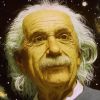 +50 +1
+50 +1Gravitational Waves Discovered? A Physics Rumor Sends Shockwaves Across Twitter
The team behind the experiment have yet to comment on the rumors. By Charles Poladian.
-
 +36 +1
+36 +1How Real Is Reality?
Reality seems pretty stubborn, pretty fixed — and pretty much independent of whatever is going on in your head. But is it, really? Astrophysicist Adam Frank explores the scientific debate.
-
 +8 +1
+8 +1Time’s (Almost) Reversible Arrow
The irreversibility of time may be a clue as to what makes up the universe’s dark matter. By Frank Wilczek.
-
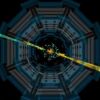 +25 +1
+25 +1Potential New Particle Sparks Flood of Theories
Physicists have produced nearly 100 papers on the latest tantalizing results from the Large Hadron Collider. By Davide Castelvecchi.
-
 +40 +1
+40 +1Sky readers
For most of human history, the stars told us where we were in space and time. Have we forgotten how to look up? By Gene Tracy.
-
 +17 +1
+17 +1Controversial experiment sees no evidence that the universe is a hologram
But originators of
-
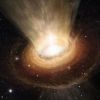 +29 +1
+29 +1Here be dragons: the supermassive black hole that’s growing impossibly fast
“Here be dragons” was a phrase once used on ancient maps, often accompanied by mythical sketches, to highlight an unexplored or potentially dangerous area. Astronomers might want to borrow this warning to label the centre of galaxies, which contain supermassive black holes. By Kevin Pimbblet.
-
 +19 +1
+19 +1What Is Spacetime, Really?
A hundred years ago today Albert Einstein published his General Theory of Relativity—a brilliant, elegant theory that has survived a century, and provides the only successful way we have of describing spacetime. There are plenty of theoretical indications, though, that General Relativity isn’t the end of the story of spacetime... By Stephen Wolfram.
-
 +21 +1
+21 +1What could dark matter be?
Scientists don’t yet know what dark matter is made of, but they are full of ideas. By Laura Dattaro.
-
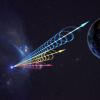 +18 +1
+18 +1Fast Radio Bursts Mystify Experts—for Now
Astronomers are closing in on the origins of baffling radio flashes from deep space. By Lee Billings.
-
 +17 +1
+17 +1The most beautiful theory
A century ago Albert Einstein changed the way humans saw the universe. His work is still offering new insights today
-
 +59 +1
+59 +1Where Are All The Aliens? What Is Fermi’s Paradox?
At some point in our lives, we gaze up at the night sky and wonder if we are all alone in the universe. With trillions and trillions of stars up there, most with very their own solar systems, one would think that there is virtually an unlimited number of chances for the spark of life to kick off. We don’t even have to look to the stars to wonder if life originated on another world, we can look in our very own backyard — Mars and Jupiter’s moon Europa both offer a tantalizing chance...
-
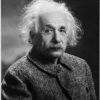 +19 +1
+19 +1Einstein’s Unfinished Dream: Marrying Relativity to the Quantum World
On the centennial of the theory of general relativity, senior Fermilab scientist Don Lincoln reflects on Einstein's quest to understand the quantum world.
-
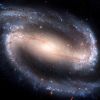 +39 +1
+39 +1Astronomers Indirectly Spot Neutrinos Released Just 1 Second after the Birth of the Universe
The universe's oldest light hasn't made a pit stop for 13.82 billion years—beginning its journey just 380,000 years after the big bang. That light, the so-called cosmic microwave background (CMB), serves as a familiar hunting ground for astronomers who seek to understand the universe in its infancy. Unfortunately, it also obscures what lies beyond it: the first hundreds of thousands of years of the universe. Now astronomers think they have peeked beyond even...
Submit a link
Start a discussion




















